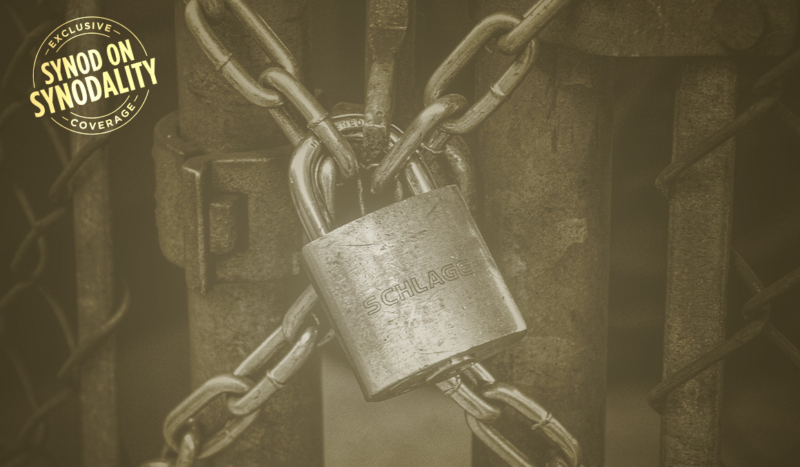
Despite Pope Francis’ calls for confidentiality at the 2023 Synod on Synodality, confidential synod documents have been posted to an unsecured server.
The Pillar reported that official Synod documents had been posted to an unsecured Vatican server accessible to the general public. The server includes lists of working group assignments, group reports, and at least one document signed by a participating bishop.
The server, intended for synod participants only, does not require a password or authorization to log on to it.
The server also included a summary of questions that participants were asked. According to the document, participants were asked what they learned about “listening as a characteristic of a synodal Church” and “what tensions emerged most strongly” during small group discussions.
According to the Pillar, the reports submitted contained similar information to that which has been shared with journalists during the daily press briefings.
However, Paolo Ruffini, the president of communications for the synod, has repeatedly told journalists that he does not have access to documents containing each participant’s working group. Yet the server, open to the general public, contained a document that listed the Synod participants and their assigned groups.
In an article released earlier this week, the National Catholic Register analyzed a photo of one small group and obtained a list of who was assigned to that table. The photo captured small group 28, a group assigned to discuss LGBTQ issues within the Church. The table included two Americans, Jesuit priest Fr. James Martin and Cynthia Bailey Manns, a laywoman known for her advocacy for LGBTQ inclusion.
The apparent security glitch raises questions about the Vatican’s approach to the security of synodal information. Before the synod, Pope Francis requested that participants “fast” from discussing the synod with members of the press until the end of the month.
Pope Francis and synod officials say that this lack of transparency is aimed at preserving an aura of confidentiality around the synod in an attempt to further promote listening and prevent the media from driving conversations taking place within Paul VI Hall.
During previous synods, the Vatican has regularly released working documents to the press and has allowed participating bishops to provide interviews to journalists.
To abide by Pope Francis’ request for a “certain restraint” of the press, the Pillar did not release any of the confidential documents nor did they disclose the members of small groups.
Upon publication, the Vatican has not responded to a request for comment. CatholicVote has not accessed the server to analyze documents.

